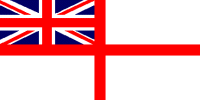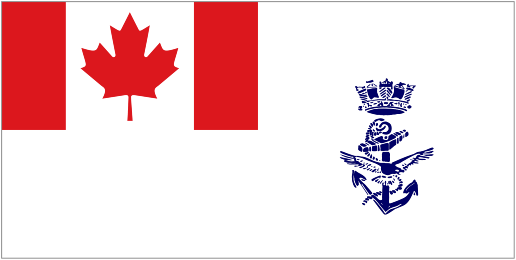|
A Royal Canadian Navy Historical Project
In memory of those who have Crossed the Bar
Doris Grierson Hope intercepted U-boat messages in WWII, received Bletchley Park badge The Ottawa Citizen by Andrew Duffy, 30 Aug 2019
As a high school student during the Second World War, Ottawa’s Doris Grierson wondered what she was going to do with her life.
At the time, smart young women like Grierson were mostly streamed into careers as clerks, secretaries, teachers or nurses.
But the war opened up vast new opportunities as women took on traditionally male roles to release soldiers and sailors for wartime service. The Wrens, members of the Women’s Royal Canadian Naval Service, were at the vanguard of that movement.
Grierson remembers reviewing the list of wartime jobs available to Wrens — cook, steward, supply assistant, postal clerk, pay writer, administrative write, coder, teletype operator, transport driver, dispatch rider — and stopping when she came across the words, “wireless telegraphist.”
“It sounded unusual and challenging,” she wrote in her memoir, ‘A Wren Remembers.’ “What an opportunity to do something different and to serve my country.”
Grierson was one of 6,000 Canadian women to enlist in the Wrens during the war. As a wireless telegraphist, she intercepted and plotted radio transmissions from German U-boats during the Battle of the Atlantic. Her reports were sent directly to Naval Service Headquarters in Ottawa, and from there to Bletchley Park, the top-secret nerve centre of Britain’s wartime intelligence gathering.
She would receive an official Bletchley Park badge from the British government in recognition of her contribution.
Doris Grierson Hope, a retired member of Algonquin College’s teaching faculty and a dedicated genealogist, historian, bridge player and golfer, died Aug. 24 at The Ottawa Hospital. She was 96.
“The Wrens were one of the most important things in her life: It gave a sense of purpose,” said her daughter, Melodie Summers. “She was a tremendous intellect and extremely hard-working. She was a maverick ahead of her time.”
Born into the Depression on March 29, 1923, Doris Ethel Grierson grew up on a dairy farm in what is now Kanata. Her mother, Minnie Sparks, and father, Ernest Grierson, were both descendants of the Ottawa Valley’s earliest pioneers.
A gifted student, Grierson graduated at the top of her class in Nepean High School and went to work, briefly, for an Ottawa lawyer.
But her career path changed in July 1942 when the Canadian government approved the creation of the Women’s Royal Canadian Naval Service, marking the entry of women into the navy. The first class of Wrens reported to the training depot at Ottawa’s Kingsmill House on Laurier Avenue East in August 1942. A select number became part of Canada’s fast-expanding intelligence gathering network.
After her basic training, Grierson was sent to signals school in St. Hyacinthe, Quebec, at a condemned army base. The conditions were “abominable,” she said, with 60 Wrens crammed into an old army hut, heated by pot-bellied stoves, with two bathtubs, four showers and two toilets.
Grierson studied Morse Code and electronics, and learned to send, receive and transcribe signals. Upon graduation, she was sent to HMCS Coverdale, a high-frequency, direction-finding station near Moncton, N.B.
It was staffed by 140 Wrens. In three shifts, 24-hours a day, they monitored German submarine messages, and took bearings on the transmissions. They had only seconds to zero in on the subs since the Germans had been taught to keep their messages to less than 30 seconds.
“The weight of our responsibility was constantly with us,” she wrote in ‘A Wren Remembers.’
After the war, Grierson was demobilized and went to work for an insurance company, London Life, where she met her husband, Bob Hope. They married in 1954, and their only child, Melodie, was born two years later.
Doris Grierson Hope returned to school part-time and, in 1961, she was among the first women to graduate with a commerce degree from Carleton University. She worked as a teacher at the Ontario Vocational Centre then joined the staff of Algonquin College when it launched in 1967. She taught business and English. Hope later went back to school and obtained undergraduate and master’s degrees in religious studies. After her husband died in 1977, she bought a home in Port Charlotte, Florida, so that she could golf year-round.
“She golfed every day and played bridge every night,” her daughter said.
Hope was an active member of the Ex-Wren Association of Ottawa, the Historical Society of Ottawa and the Ottawa branch of the Ontario Genealogical Society. In her mid-90s, she completed a history of the Wrens; it was her third such pamphlet published by the historical society.
“Doris was a prolific contributor to our knowledge of local history,” said Randy Boswell, a history writer and associate professor at Carleton’s School of Journalism and Communications. “Like many people, she was passionate about researching her family history, but she had a wider vision, and turned her interest in genealogy into a broader projects, like her history of the former Torbolton Township.”
Her daughter, Melodie, said she will miss her mother’s fortitude and her unwavering support.
“She was a very devoted, loyal person.”
|
 For Posterity's Sake
For Posterity's Sake 


